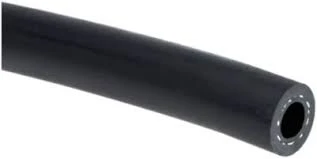Gasoline Delivery Hose for Efficient Fuel Transfer Systems
វិច្ឆិកា . 27, 2024 14:37 Back to list
Gasoline Delivery Hose for Efficient Fuel Transfer Systems
The Importance of Gasoline Hoses in the Automotive Industry
Gasoline hoses play a crucial role in the automotive and transportation sectors, serving as vital components for fuel delivery systems in various vehicles, from cars and motorcycles to trucks and heavy machinery. These hoses are designed to transport gasoline safely and efficiently from the tank to the engine, ensuring optimal performance and reliability.
The structure of gasoline hoses is engineered to withstand the harsh conditions associated with transporting fuels. Typically made from rubber or specialized synthetic materials, these hoses are resistant to abrasion, heat, and chemical degradation. This is essential since gasoline is a volatile substance that can deteriorate certain types of materials over time. High-quality gasoline hoses are often reinforced with braided fibers to enhance durability and flexibility, allowing them to withstand pressure fluctuations during fuel delivery.
Safety is a paramount concern in the design and application of gasoline hoses. Due to the flammable nature of gasoline, any leaks or ruptures can pose significant risks, including potential fires or environmental hazards. As a result, manufacturers adhere to strict industry standards and regulations to ensure that gasoline hoses meet safety requirements. This includes rigorous testing for pressure resistance, temperature tolerance, and chemical compatibility to ensure they can perform under various conditions without failing.
gasoline hose

Regular maintenance and inspection of gasoline hoses are essential for ensuring their longevity and reliability. Over time, exposure to heat, fuel, and environmental elements can lead to wear and tear. Signs of degradation include cracking, bulging, or hardening of the hose material. Vehicle owners and fleet managers are encouraged to conduct routine checks and replace any hoses showing signs of damage promptly. This proactive approach not only enhances safety but also contributes to the overall efficiency of the vehicle's fuel system.
The development of advanced gasoline hoses has also been driven by the automotive industry's increasing focus on sustainability and fuel efficiency. Innovations in materials and manufacturing processes have led to the creation of hoses that are both lightweight and resistant to fuel permeation. This reduces the amount of fuel that evaporates during transport, thereby minimizing environmental impact and supporting fuel economy.
Furthermore, as the automotive industry evolves with the advent of electric vehicles (EVs) and alternative fuel sources, gasoline hoses continue to play a role in transitional technologies. Hybrids and flex-fuel vehicles, for instance, still rely on robust gasoline delivery systems. Therefore, the demand for high-quality gasoline hoses remains strong, even as new technologies emerge.
In conclusion, gasoline hoses are integral to the automotive world, ensuring the safe and efficient transport of fuel within various vehicles. With their importance underscored by safety, performance, and environmental considerations, ongoing advancements in hose technology are essential. As the industry continues to innovate and adapt to new fuel sources and technologies, gasoline hoses will remain a foundational component, underscoring their value in the evolving landscape of transportation. Regular inspection and maintenance of these hoses are crucial in promoting safety and efficiency, making them an indispensable part of every vehicle's fuel system.
